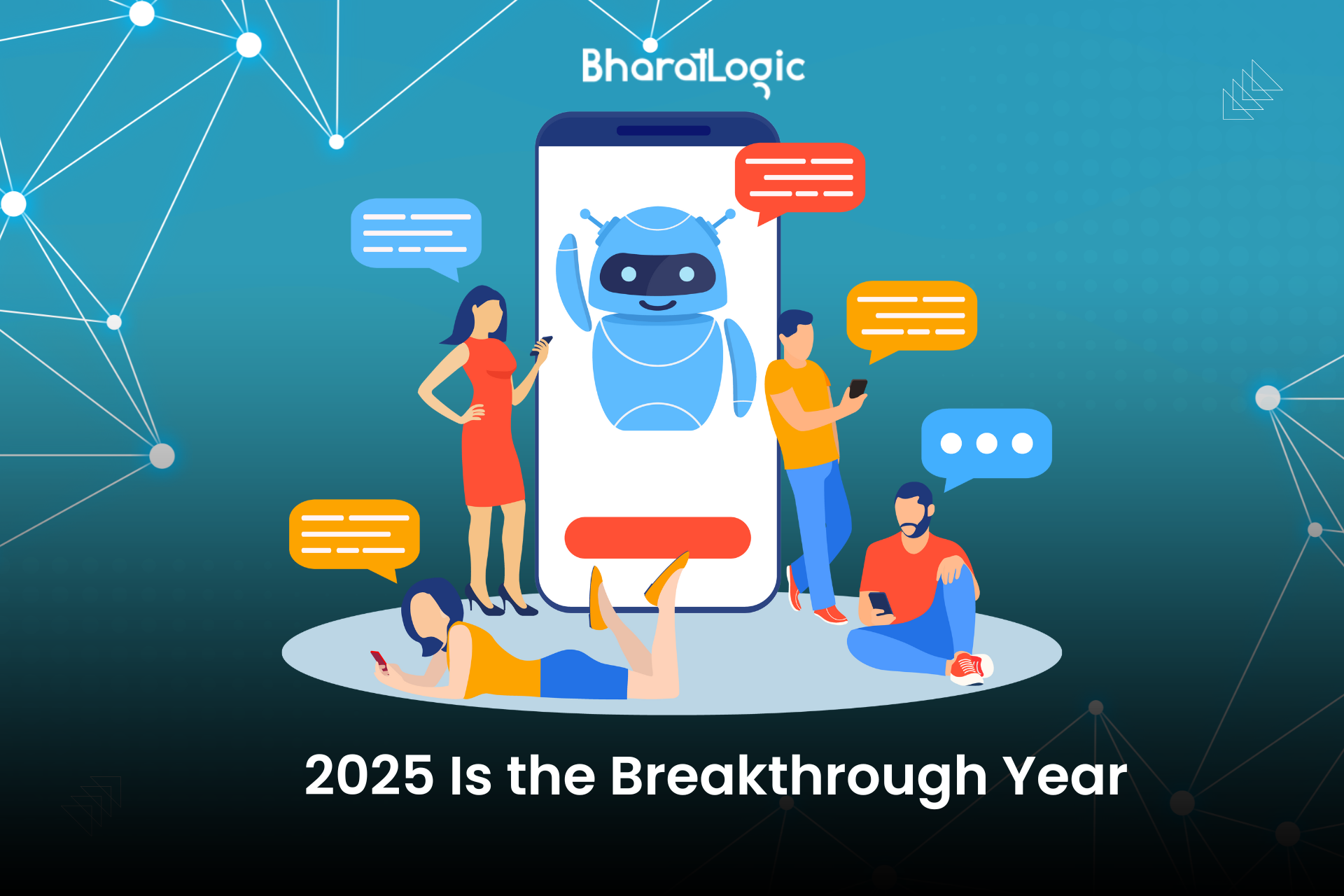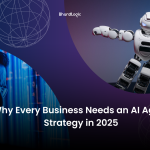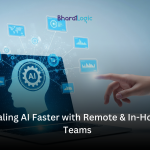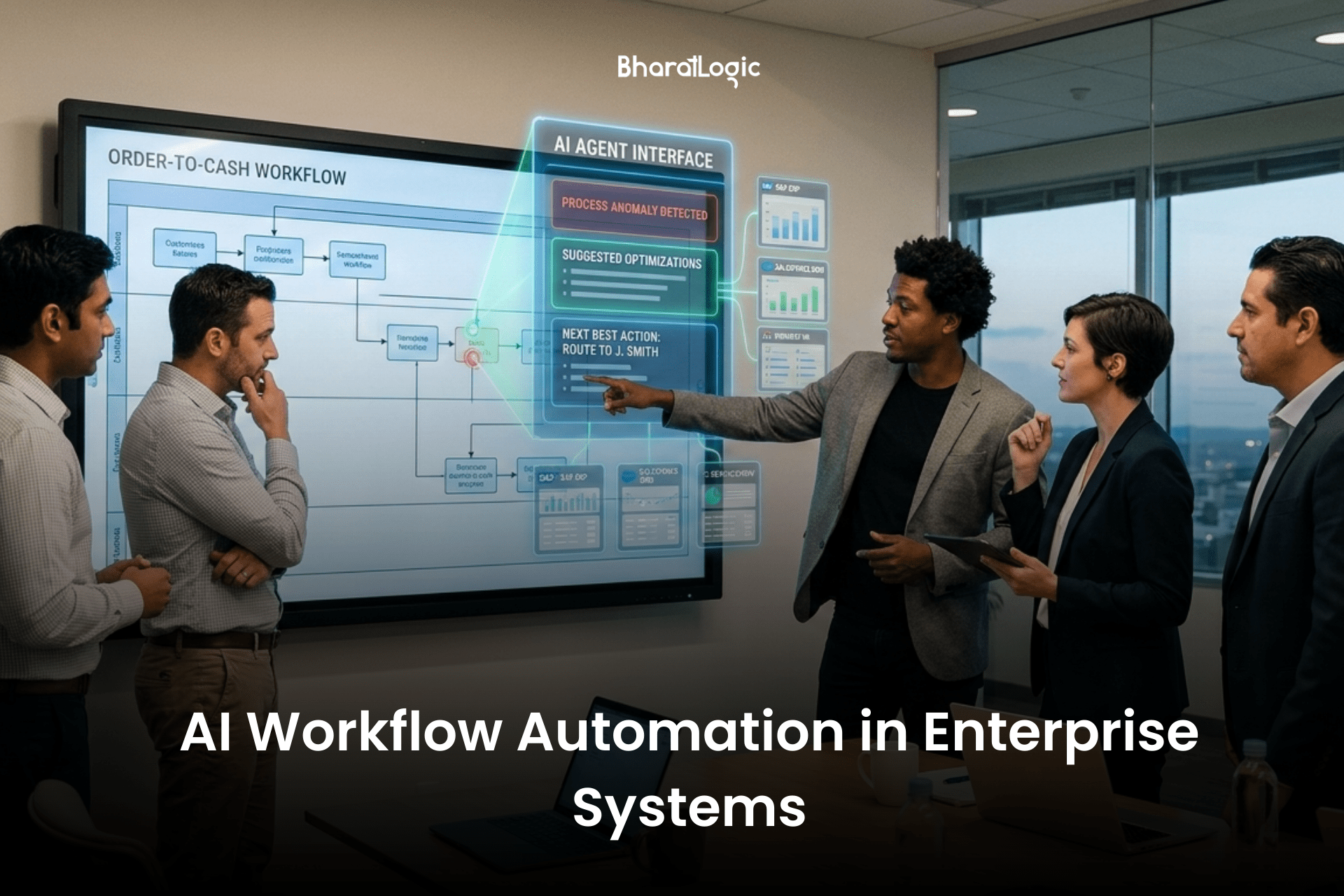From Chatbots to Agentic AI Why 2025 Is the Year of AI
In 2025, companies are adopting a sharp move away from legacy chatbots to AI agents that work as self-sufficient digital workers. Unlike the previous chatbots that only responded to questions, these AI agents can perform actual tasks such as filing claims, booking appointments, handling compliance, and connecting with enterprise systems. This shift is more than a technology upgrade it’s a milestone in the digital workforce, where AI is no longer perceived as a mere support tool, but as a reliable and trustworthy co-worker. Organizations are increasingly using AI agents to take on complicated tasks, enhancing efficiency and redefining how work is accomplished.
Why Chatbots No Longer Work

For over a decade, chatbots have been used primarily for customer support and automating FAQs, but their limitations have become increasingly clear:
- Scripted Interactions: Chatbots rely on pre-written scripts, which make them rigid and unable to adapt to more complex, dynamic conversations.
- Limited Task Handling: They can’t complete multi-step processes or manage tasks that require context or decision-making across different systems.
- High Failure Rates: When faced with intricate or nuanced queries, chatbots often fail to provide accurate or meaningful responses.
- Lack of Outcomes: Businesses need more than just conversation they need systems that can deliver real, actionable outcomes.
This has driven the shift toward more advanced AI agents capable of performing complex tasks and delivering tangible results.
The Rise of Agentic AI in 2025

AI agents marks a significant shift in how businesses leverage technology, with these agents functioning as autonomous digital employees. Unlike traditional chatbots, AI agents are capable of handling a wide array of tasks with far greater efficiency and intelligence. Here are the key features of agentic AI:
- Proactive Execution
- AI agents can perform tasks autonomously without constant human prompts, ensuring operations continue smoothly and efficiently.
- Example: AI agents can follow through on tasks such as scheduling, filing claims, or completing routine processes without needing to be reminded.
2. Systems Integration
- These agents can seamlessly connect with a variety of business systems, such as CRM (Customer Relationship Management), ERP (Enterprise Resource Planning), EHR (Electronic Health Records), and cloud-based services.
- Example: An AI agent can access and update client records in your CRM, check inventory levels through ERP, or manage data across multiple platforms without manual intervention.
3. Multi-Step Workflows
- AI agents can handle complex, multi-step processes from start to finish, ensuring a smooth flow of tasks without the need for human handholding or oversight.
- Example: An AI agent could manage a customer’s entire service request, from intake to resolution, coordinating actions across various departments without requiring human assistance.
4. Contextual Learning
- These agents continually improve their performance by learning from each interaction, adapting and enhancing their responses over time to become more accurate and effective.
- Example: The AI learns the preferences and behaviors of users, improving its predictions and actions, thereby providing more personalized, context-aware solutions.
Real-World Example:
Where a traditional chatbot might only confirm a meeting, an AI agent takes it a step further it can schedule the meeting, adjust the timing if conflicts arise, notify stakeholders, and update records across systems automatically, all without human intervention. This level of automation makes AI agents invaluable for businesses, allowing for more complex and reliable operations.
Benefits for the Digital Workforce

Implementing agentic AI is revolutionizing the digital workforce across various industries by introducing several key advantages. Here’s how AI agents are transforming operations:
1. Efficiency
Reduction in Turnaround Time: Autonomous AI can handle repetitive tasks quickly, reducing delays and improving overall efficiency in business processes.
Example: AI agents can automate customer service responses, claim processing, and data entry, speeding up tasks that once took hours or days.
2. Scalability
Expanding Operations Without Extra Headcount: With AI handling routine and repetitive tasks, businesses can scale operations much faster without the need to proportionally increase the size of their workforce.
Example: An AI agent can manage thousands of customer inquiries or process hundreds of claims at once, something that would otherwise require a large team of human workers.
3. Cost Savings
Reduction in Labor and Overhead Costs: Automating structured workflows with AI cuts down on labor costs and overhead associated with managing manual tasks, freeing up budget for other strategic initiatives.
Example: By automating tasks like scheduling, data analysis, and reporting, businesses reduce the need for additional administrative personnel, lowering HR costs.
4. Employee Focus on Higher-Value Tasks
Freeing Human Staff for Critical Work: With AI handling the repetitive, time-consuming tasks, human employees are able to focus on areas that require creativity, critical thinking, strategic judgment, and empathy.
Example: Customer support teams can focus on resolving complex issues, while AI handles the more straightforward inquiries and administrative tasks.
5. Consistency and Accuracy
Reduced Errors and Increased Consistency: AI systems, when implemented properly, can reduce human error, providing consistent performance and more accurate results, especially in structured tasks.
Example: AI agents can process and update records with high accuracy, ensuring fewer mistakes compared to manual data entry.
6. 24/7 Availability
Around-the-Clock Operations: AI agents can work continuously, providing uninterrupted service and support, even during off-hours, enabling businesses to offer 24/7 operations without the need for shift workers.
Example: An AI agent can handle customer queries or manage operations in different time zones, ensuring that no matter when the request comes in, it gets processed efficiently.
7. Improved Customer Experience
Personalization at Scale: AI agents can manage large volumes of customer interactions while providing personalized experiences tailored to individual needs, preferences, and previous interactions.
Example: AI can recommend products, answer personalized queries, and offer proactive assistance, all while maintaining a consistent and high-quality customer experience.
Real-World Applications of AI Agents

- Healthcare: AI agents streamline administrative tasks such as managing insurance claims, scheduling appointments, and tracking compliance, improving efficiency and patient care.
- Finance: In finance, AI agents automate fraud detection, customer onboarding, and regulatory reporting, ensuring faster and more accurate processes.
- Retail & eCommerce: AI manages inventory, handles customer inquiries, and automates order fulfillment, creating a smoother shopping experience for customers.
- Logistics: AI optimizes fleet management, predicts maintenance needs, and tracks deliveries in real-time, enhancing operational efficiency and reducing downtime across supply chains.
Why 2025 Is the Breakthrough Year

Mainstream Adoption of AI Agents
The year 2025 marks the widespread implementation of agentic AI, where businesses are embracing autonomous AI systems beyond simple chatbots. AI agents are now seen as integral parts of the digital workforce, handling complex tasks and driving efficiency.
Embedding Autonomous AI in Operations
Companies are embedding autonomous AI across various business functions, from customer service to supply chain management, enabling AI agents to autonomously execute tasks without human intervention. This integration leads to smoother operations and better performance.
Reducing Dependency on Manual Labor
AI agents are reducing reliance on manual labor by automating repetitive, time-consuming tasks like data entry, scheduling, and routine customer interactions. This shift allows businesses to allocate human resources to higher-value activities, such as strategy and innovation.
Building Hybrid Teams
The future of work is increasingly hybrid, with AI agents working alongside human employees. In this model, AI handles the repetitive and structured tasks, while humans focus on decision-making, creativity, and problem-solving, creating a seamless collaboration between the two.
Chatbots Are No Longer Enough
Chatbots, which were once the go-to for customer interactions, are being phased out as they cannot keep up with the growing digital demands of businesses. AI agents offer a far more robust solution, handling not only interactions but also tasks that require decision-making and system integration.
The Future of Work Is Agentic AI

2025 will be remembered as the year when chatbots faded into the background, and autonomous digital employees took center stage. As organizations face increasing digital demands, they are turning to agentic AI a leap forward from traditional chatbots. Unlike basic chatbots, which only handle scripted, reactive tasks, AI agents are autonomous systems capable of making decisions, managing multi-step processes, and integrating seamlessly across platforms. They perform high-value functions like scheduling, reporting, compliance checks, and customer service with little to no human intervention. This shift is not just about improving efficiency; it’s about preparing for a future where AI becomes an integral, proactive part of daily operations.
Organizations that adopt agentic AI today are positioning themselves at the forefront of this transformation. These forward-thinking companies are embracing new business models where AI agents collaborate with human teams to streamline workflows, cut down on overhead, and increase productivity. This new approach enables businesses to scale faster without proportional increases in labor, while also creating more dynamic and adaptable systems.
At BharatLogic, we help global organizations design and deploy AI-driven platforms that incorporate agentic systems into their existing operations. Our solutions enable businesses to integrate remote in-house engineering teams and create seamless, AI-powered workflows that drive sustainable growth.
The chatbot era is over. The age of agentic AI has begun, and those who adopt it now will lead the way in shaping the future of work.
Ready to Accelerate with AI Agents?
If you’re exploring how to bring agentic AI into your business, our team at BharatLogic can help.
✔ Build custom AI agents that act as autonomous digital employees
✔ Deploy secure, scalable platforms tailored to your workflows
✔ Extend capacity with remote in-house engineering teams
✉ Contact us today to discuss how we can co-build your next-generation digital workforce.
Share the article:







